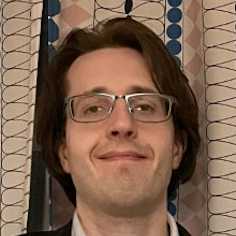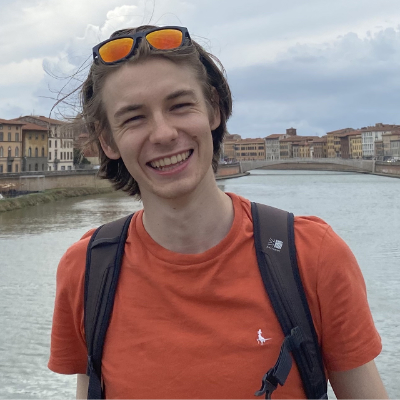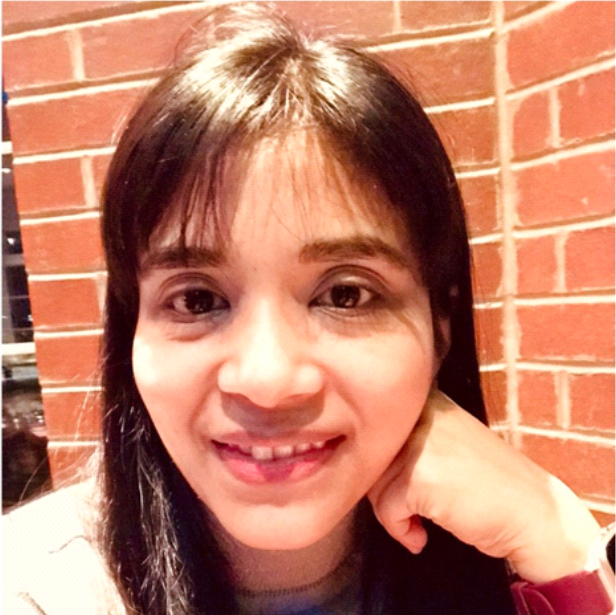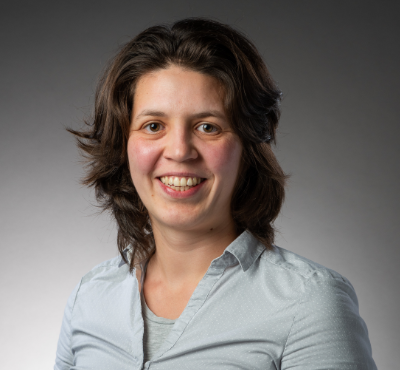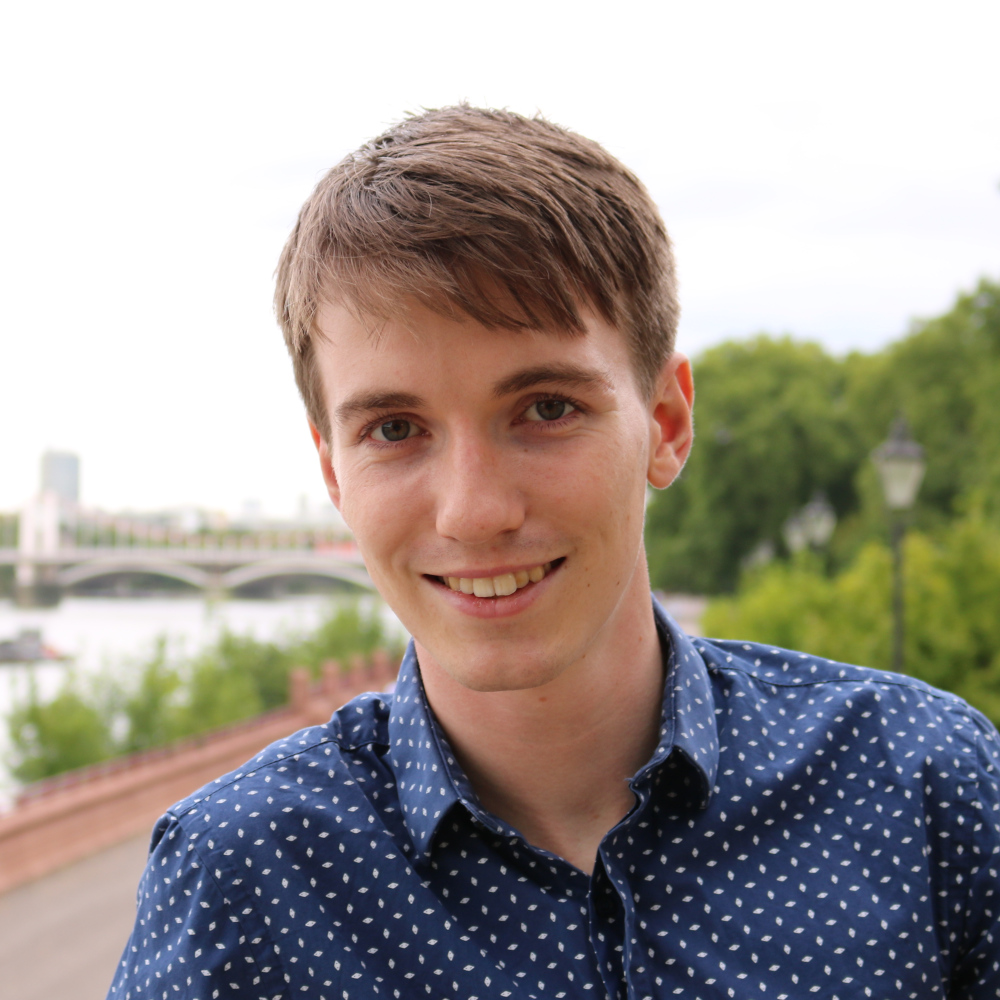Current members
Dr Eric Lundgren, Postdoctoral Researcher
Eric obtained his PhD from UCL in 2023, working at the London Center for Nanotechnology. He researched precursor molecules for atomic bismuth doping in silicon using an STM, and the applications of precision doping of single bismuth atoms for quantum device fabrication. Before this, Eric completed an MSci in Natural Sciences (Condensed Matter Physics and Inorganic Chemistry) at UCL, and undertook internships at the LCN and at Chalmers University of Technology. Eric have now joined Bath University seeking to build upon his STM knowledge through molecular manipulation and STM luminescence measurements, bridging the gap between STM and optics.
Pieter Keenan, PhD student
Pieter obtained a BSc in Natural Sciences (Physics with Chemistry) from the University of Bath in 2021 and has also spent two years in Bristol undertaking particle physics research as part of the DUNE and SiD collaborations. He is excited to be back in Bath and to be combining the particle coding habits with the physics and chemistry while working with the STMs. He is aiming to establish coupled measurement of light emission and atomic manipulation, enhanced with spectroscopic and single-photon correlation capabilities.
Dr Paramita Pal, Postdoctoral Researcher
I joined the University of Bath in 2023 as a postdoctoral research associate to work on fibre-integrated technologies for next-generation mobile communications on a collaborative project with British Telecom. During my PhD, I worked on silicon photonics, in particular on the fabrication of rare-earth (erbium) doped silicon, silica-on-silicon substrates to build a planar waveguide platform for an integrated waveguide amplifier (EDWA) using Ultrafast Laser Plasma doping (ULPD) at the University of Leeds. I received my BSc and MSc degrees in physics from Jadavpur University, Kolkata, India. I have done several internships, working on micro pattern gaseous detectors (MPGDs) in CERN, Switzerland, in Saha Institute of Nuclear Physics (SINP), Kolkata, India and on multi crystalline silicon wafer solar cells in SERIS, National University of Singapore (NUS), Singapore.
Dr Kristina Rusimova, Assistant Professor (Lecturer)
I obtained my PhD in atomic manipulation with the scanning tunnelling microscope from the University of Bath in 2016. Following a short postdoctoral position in photonics, I joined the Department of Physics at the University of Bath as an independent Prize Fellow in 2018 and as a tenured Lecturer (Assistant Professor) in 2021. In 2022 I was part of the team awarded the Royal Society of Chemistry’s Faraday Division Horizon Prize for the discovery of chiroptical harmonic scattering. My research interests include single molecule manipulation, quantum optics, advanced materials, and speciality optical fibres.
Past Members
Dr Cameron McGarry, Postdoctoral Researcher
Cameron’s PhD at Imperial College London was in atomic and molecular physics, and he now brings this expertise to Bath as part of the team investigating fast low-loss optical switching. He is designing and implementing fibre-integrated photonic devices for use in quantum data centres, including switches, low-loss interconnects to hollow core fibre, and heralded single-photon sources.
Alumni
Dr Dewan Chowdhury, PhD student
Charlie Perek-Jennings, MPhys student
Daniel Goodwin, MPhys student
Thomas Coates-Evans, MPhys student
Shean Ong, MPhys student
Louis Remington, MPhys student
Jamie Greenwood, MPhys student
Danel Gomez Iradi, MPhys student
Riley Shurvinton, MSc student
Jaiya Keohane, BSc student
Sanjana Vinta, BSc student
Elliot Heeley, BSc student
Facilities
We operate in two main laboratory rooms that are specific to our group. The Atomic Manipulation room is located in the 4W building, underneath the coffee shop and houses 2 room-temperature ultrahigh vacuum STMs with state-of-the-art automation. The sample characterisation room is located in the main Physics building 3W and contains an optics bench, a multipurpose benchtop AFM, and a set-up for working with on-chip optical devices. We also have access to numerous shared facilities, that include a optical fibre fabrication tower, multiphoton microscope, TEM, SEM, and a nanofabricaiton facility.
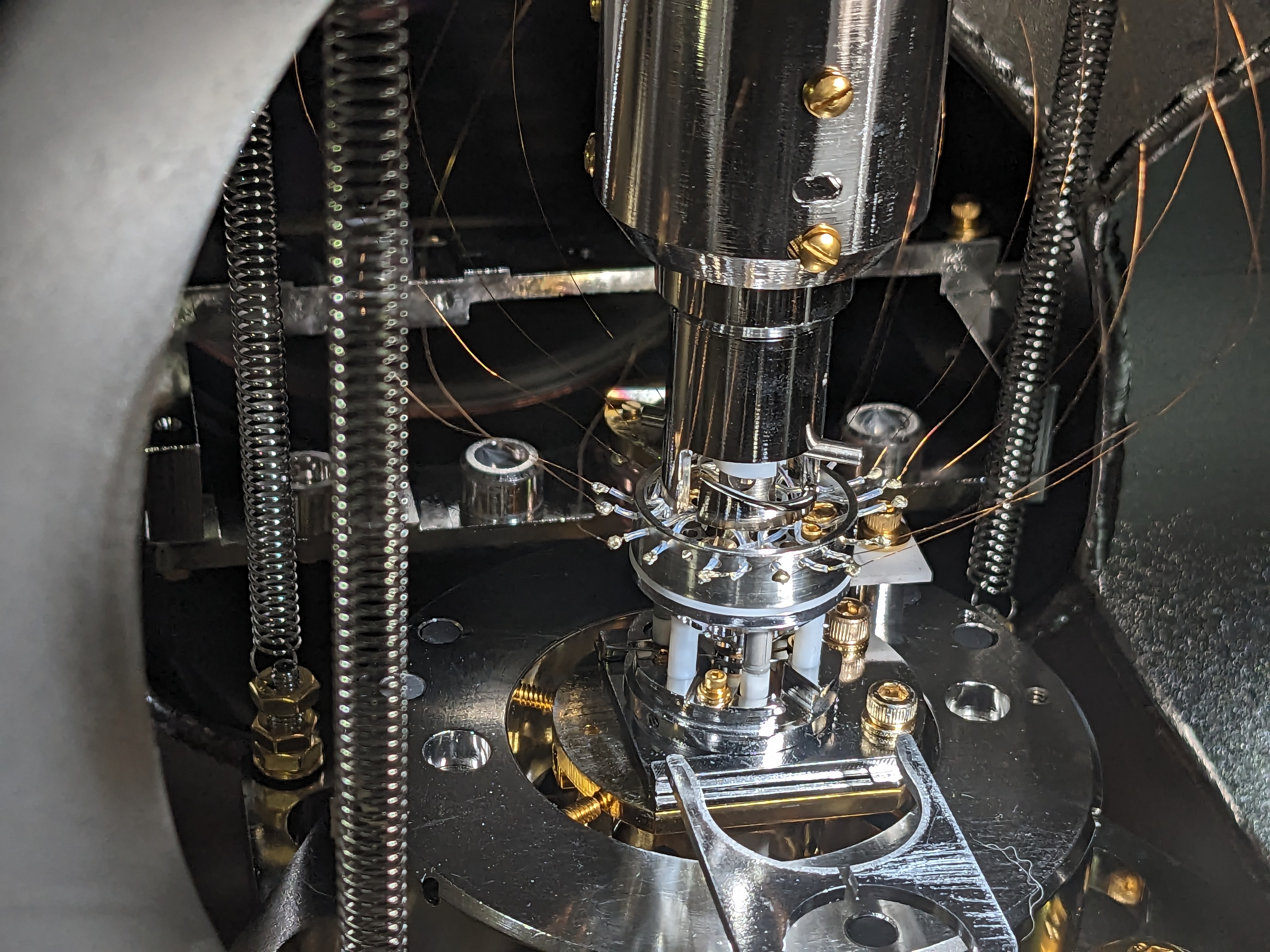
Room temperature RHK STM, Atomic manipulation lab, Room 4W1.19
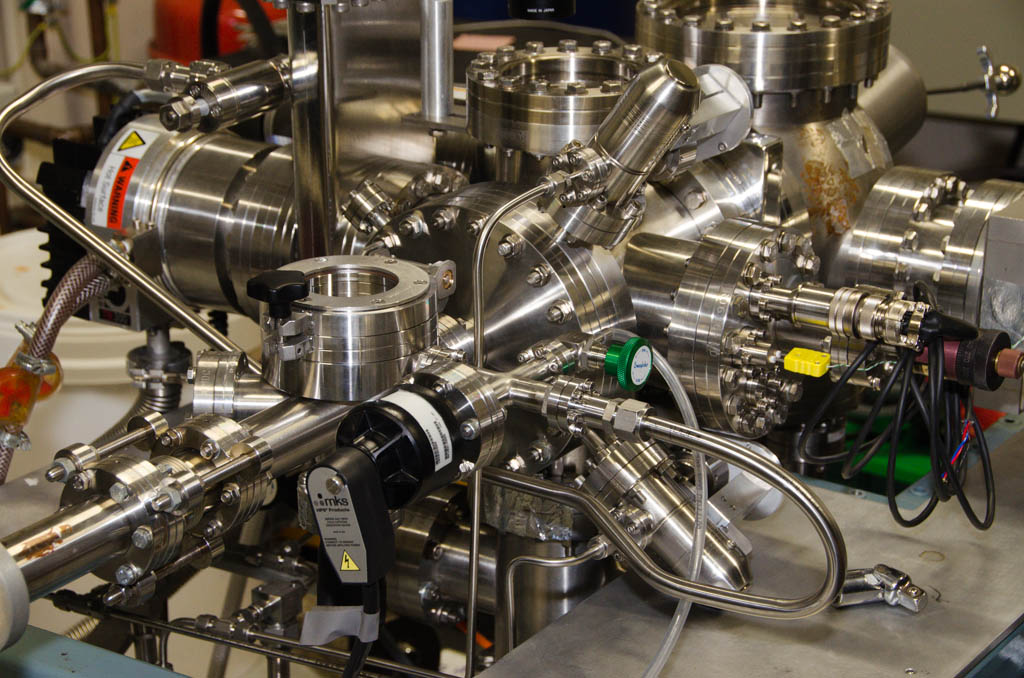
Room temperature Omicron STM 1, Atomic manipulation lab, Room 4W1.19
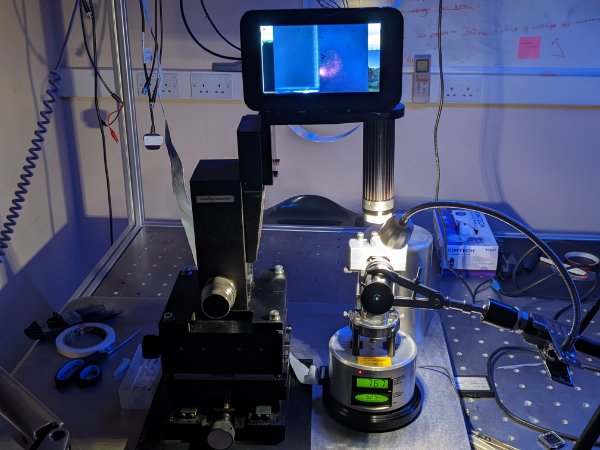
Veeco Nanoscope IIIa Multimode AFM, Sample characterisation lab, Room 3W2.18c
